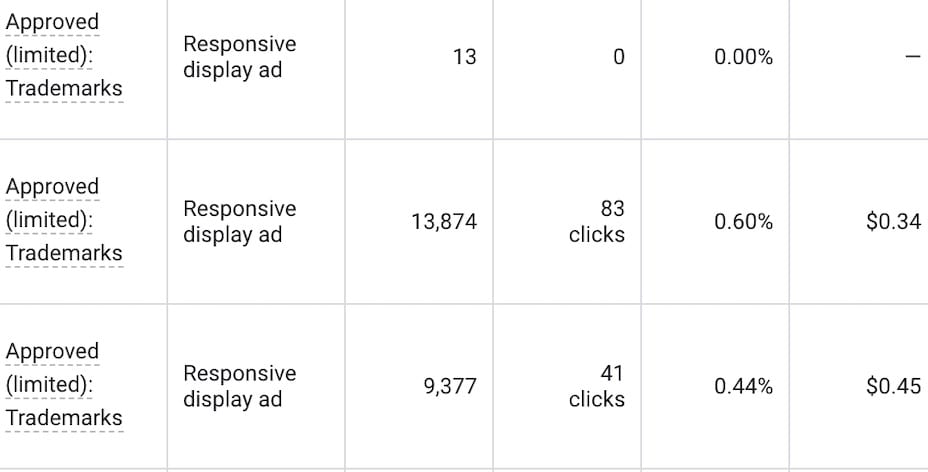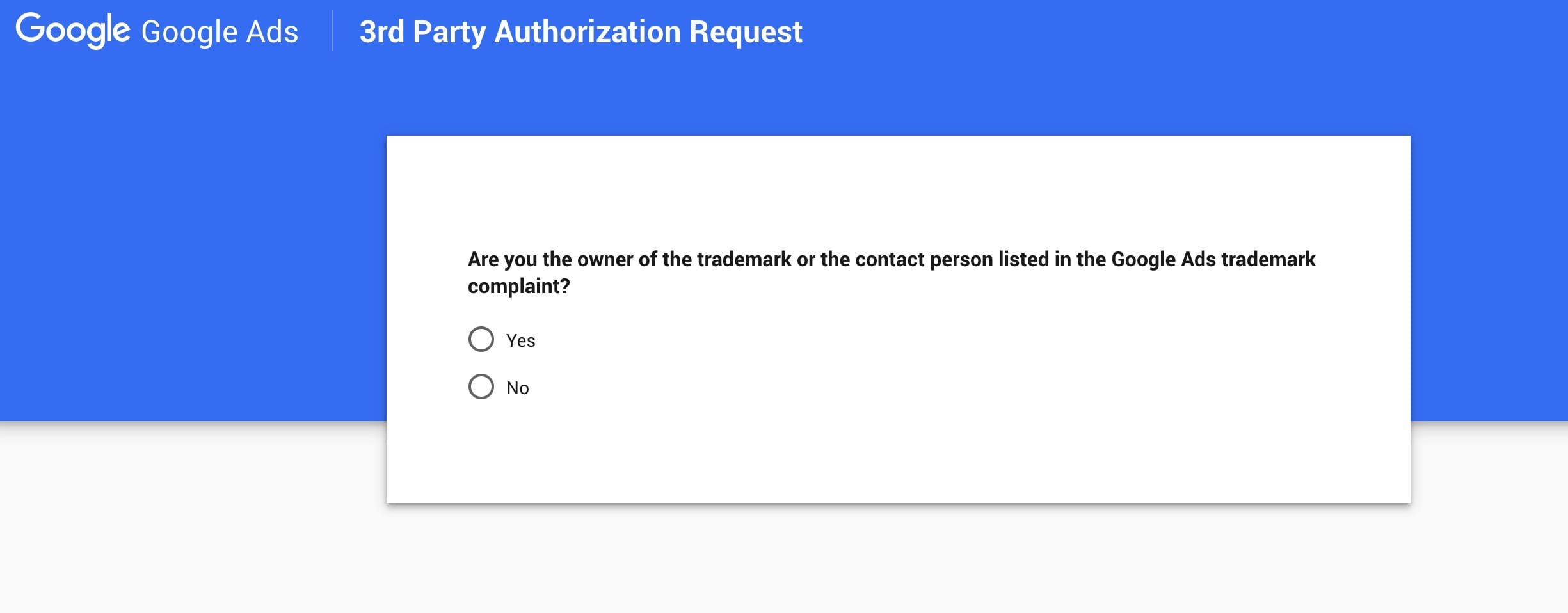Google Ads trademark issues can cause delays to your campaign if you are trying to run on trademarked terms and also cause issues when other advertisers are violating your trademarked terms.
You will likely encounter the first issue as an agency, running ads on behalf of your clients. If a client creates a new account on your behalf, versus granting access to the current one, it’s vital you have approval to run trademarked terms prior to launching campaigns.

If you need to get authorized to use trademarked terms on the trademark owner’s behalf or authorize an agency to use your trademarked terms, the trademark owner will need to submit a 3rd Party Authorization Request. The request takes approximately 5-7 business days to complete so you will need to be mindful of the timeline when creating campaigns.

On the other hand, everyone is susceptible to trademark infringement by competing advertisers. While some cases of trademark infringement are cut and dry, many are not, and require an in-depth look at Google’s trademark policy.
When you suspect another company is using your trademarked terms you will need to submit a Trademark Complaint Form. If you are an agency acting on behalf of your client, there will be additional verification steps. As an agency you can submit the form and Google will reach out to you requesting verification from the trademark owner. This verification is as simple as forwarding the email from Google to the trademark owner and having them respond to verify that you are authorized to act on their behalf. If you are the trademark owner, the Trademark Complaint Form is the only form you will need.
While Google recognizes the importance of trademarks, there are instances in which a trademark complaint will be denied. If Google determines that the advertiser is compliant with Google’s Reseller and Informational Site policy, which “allows certain ads to use a trademark in ad text by advertisers that appear to be resellers, informational sites, or providers of components, parts, or compatible products”, Google will take no action against the advertiser. This applies to resellers who can use trademark in the ad copy as long as the ad’s landing page is primarily dedicated to selling products or services corresponding to the trademark. The page must clearly facilitate the sale of the product and provide information such as price or rate for the product or service. Informational sites can also use trademarks in the ad copy if the primary purpose of the ad’s landing page is to provide informative details about products or services corresponding to the trademark. One example of an industry this policy would affect is the hospitality industry in which vendors pay a portion of their sales proceeds to the trademarked company directly.
It is important to remember that trademark violations only apply to trademarked terms in the ad copy itself. Branded keywords are not protected by Google Ads trademark policy. Anyone, including your competitors, can bid on your brand keywords. Branded keywords are the most valuable search traffic with the highest conversions because a branded search shows a high level of purchase intent. This makes brand keywords an attractive target for partners, competitors, and third parties to run ads on. Branded terms are also affordable which makes them further attractive to competitors and others. While ad text and ad title are protected, competitors may use your brand name in the display URL.
Lastly, while the responsibility of notifying Google of trademark infringements lies on the trademark owner, Google does have safeguards in place to flag ads for violations. This can work for you or against you. Google can, but not always does, catch ads that use trademarked terms and limits their reach. If you are trying to advertise on another company’s behalf, you may notice that your ads are suffering from limited reach. This requires the trademark owner to submit the 3rd Party Authorization Request listed above.




